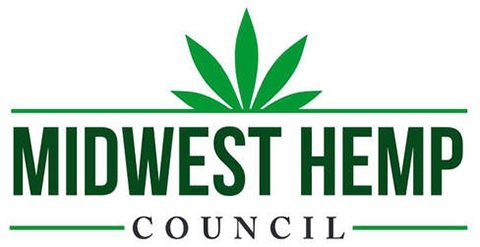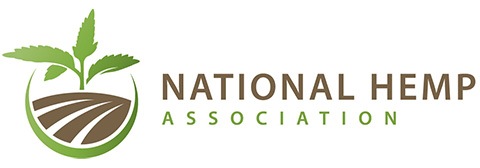
CBD product sales reported by publicly traded companies continued to steady, and in some cases even saw small improvements in the opening period of 2023. Still, familiar headwinds persist for the industry as hopes that CBD could be regulated in the U.S. via Congressional action appear to be fading.
On the hemp-derived THC front, sales also appear to be stabilizing and in some cases slowing. Yet at least one company is touting plans for growth, though the possibility persists that federal lawmakers will act to regulate, limit, or potentially even prohibit the sector later this year.
CBD Company Sales Steady, but Downtrend Perists Amidst Familiar Headwinds
Charlotte’s Web (CW) reported $17 million in revenue for Q1 2023, down 12% year-on-year and down 10% from the previous quarter. The company’s press release notes that both online sales to consumers and wholesale sales to retailers were down compared to a year ago. Regarding direct-to-consumer sales, the CW press release states: “The decrease was attributable to lower traffic on the Company’s webstore. The Company is seeing a category-wide decrease in consumers searching for CBD wellness solutions and continuing to shift from higher-cost tinctures to gummies.”
CV Sciences saw a sequential increase in sales in Q1 2023, the second quarter in a row of rising revenue. CV Sciences’ Q1 2023 sales came in at $4.15 million, up 6% from the prior period, but down 7% year-on-year. According to the company’s press release, “The decline is primarily due to lower number of units sold during the first quarter 2023 by 13%, partially offset by increases in average sales price per unit in the second half of 2022.” The 13% decrease in units sold in Q1 2023 follows the CV Sciences reporting previously that for 2022 as a whole units sold declined by 22% from the prior year.
cbdMD also saw a quarter-on-quarter rise in gross sales to open this year. The company’s Q1 2023 gross revenue amounted to $6.58 million, up 5% from Q4 2022, based on recent financial disclosures. However, cbdMD’s Q1 2023 gross sales were down 34% year-on-year. The company’s press release states that Q1’s direct-to-consumer ecommerce sales were flat sequentially, while the increase in overall revenue was due to a 15% increase in wholesale sales compared to the prior period.
While two of the three companies under discussion saw sequential increases in sales to begin 2023, overarching market dynamics impacting the CBD market for over the past two years – including the inability to market products as dietary supplements or add the compound to foods, overall softening of demand in revenue and volume terms, and continued price compression – have remained constant. Those impediments appear to have prompted at least some of the companies to cast about for new markets. Both CW’s and cbdMD’s earnings reports noted expansion into the pet supplement market, while cbdMD’s and CV Sciences’ mentioned expansions of their businesses into the United Kingdom and Japan, respectively.
Meanwhile, CW’s formation of a new entity, DeFloria LLC, in conjunction with AJNA Biosciences, a subsidiary of British American Tobacco, is intended “to pursue a botanical investigative new drug (IND) through the FDA [U.S. Food and Drug Administration] drug development pathway.” Although CW’s press release states that the company is “supporting federal and state legislative initiatives to help advance a comprehensive U.S. CBD regulatory framework,” the joint venture formed with the purpose of developing a new FDA-approved drug suggests that CW may not see the dietary supplement pathway as a viable one for CBD.
Hemp-THC Sales Continue to Stabilize; Dramatic Growth in the Rearview
We pointed out previously that cbdMD entered a new market – the hemp-derived THC sector – last year in an attempt to turn around sliding sales. In its earnings releases covering Q2 and Q3 2022, the company touted the products stating that they were seeing strong growth. However, Q1 2023 is the second period in a row in which no specific mention of hemp-THC products was made in cbdMD’s financial report. Similar to the prior period, we assume that the fact that the relatively new product line was not mentioned indicates that its performance was not particularly notable.
LFTD Partners Inc., a publicly-traded company that manufactures and sells hemp-derived THC and other products, also saw a sequential increase in revenue in Q1 2023. According to the company’s most recent investor presentation, sales in the first quarter of this year reached $12.46 million, up 10% from Q4 2022. As with the CBD companies discussed above, however, LFTD is now posting year-on-year declines in revenue, to the tune of a 31% downturn compared to just over $18 million in sales in Q1 2022.
We have noted previously that the hemp-THC product sector is a particularly unstable one. Such products are commonly characterized as having been legalized via an unintended “loophole” in the language of the 2018 Farm Bill, with the possibility that loophole could be closed later this year when Congress must formulate and pass the 2023 version of the legislation. Nevertheless, LFTD’s presentation describes the company’s efforts to become vertically integrated, acquisition of a company that was previously a supplier, and partnerships that the company hopes will broaden the distribution of its hemp-THC products. Given current regulatory uncertainty, whether such efforts will have time to become established and bear fruit remains to be seen.
Related Articles:
- June 2023 Hemp Spot Price Index Report (June 28, 2023)
- How Did Hemp CBD & THC Sales Fare in 2022? (May 3, 2023)
- Will Minor Cannabinoids Become a Major Market (March 15, 2023)
- FDA’s CBD Announcement Rankles Industry, Leaves Hemp Cannabinoid Sector in Limbo (February 1, 2023)


